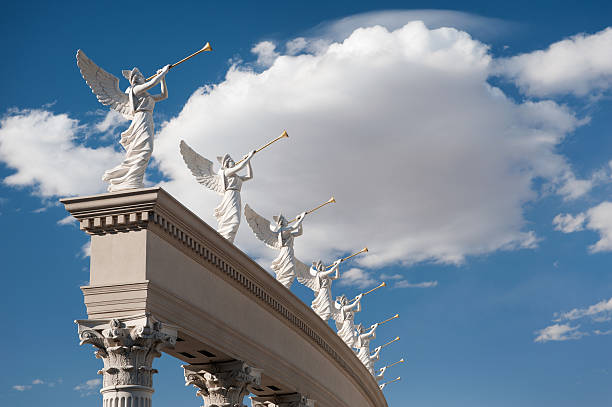- Casino News
- USA News
Las Vegas Revenue Climbs Despite Fewer Visitors


Las Vegas Defies Tourism Trends
Las Vegas continues to defy traditional tourism logic. For the second straight month, Nevada posted higher gaming revenues despite a sharp year-on-year decline in visitor numbers. July’s data shows a city attracting fewer people, but earning more from those who do arrive.
According to the Las Vegas Convention and Visitors Authority (LVCVA), July visitation fell 12% compared to 2024, with 3.09 million people traveling to the city. The drop extends a streak of year-on-year declines that now spans the entirety of 2025. The last time Las Vegas posted a meaningful gain in visitation was September 2024, when volume ticked up just 1.6%.
Convention attendance provided a partial offset, jumping 10.7% in July. Still, convention business has been volatile, swinging between double-digit increases and decreases as scheduling shifts month to month. Air travel also showed weakness. Passenger counts at Harry Reid International Airport fell 5% year-on-year to 4.77 million, with international traffic down 4%. Canadian carriers WestJet and Air Canada were especially hard-hit, recording 33% and 25% declines, respectively. British Airways, Aeromexico, and Volaris also reported decreases.
-
Tourism Decline Continues – Las Vegas visitation fell 12% year-over-year in July 2025, extending a full year of monthly declines.
-
Gaming Revenue Growth – Nevada casinos reported $1.35 billion in gaming revenue, up 4% year-over-year, driven by Strip baccarat gains and strong sportsbook performance.
-
Economic Outlook Mixed – Industry leaders see resilience despite weaker tourism, with upcoming events like the NFL season and Formula One Grand Prix expected to test momentum.
Revenue Growth Against the Grain
A large share of the July gains came from baccarat, where Strip casinos won $114.5 million — a staggering 79% increase over 2024. The volatility of the game means it can disproportionately swing overall results, but in July, baccarat was the difference-maker.
Other Nevada markets showed mixed results. Reno saw a 10% jump in revenue to $76 million, while South Lake Tahoe surged 21% on summer tourist traffic. Las Vegas locals casinos, by contrast, declined 3% year-on-year to $166 million, reflecting weaker spending outside the Strip.
Sports betting also delivered a boost, with statewide revenue up 47% from July 2024. The increase was largely tied to baseball wagering, which generated $28.7 million in GGR during a typically quiet period for sportsbooks. The paradox of higher revenues amid lower visitation has drawn national attention. Analysts note that higher prices on hotel rooms, dining, entertainment, and table games may be compensating for thinner crowds. Critics argue that those elevated costs risk alienating budget-conscious travelers, pushing some business into locals casinos or downtown venues, which have performed more steadily in recent years.
Still, industry leaders remain cautiously optimistic. Josh Swissman, founding partner of GMA Consulting, described July’s results as “indicating a level of resiliency in the gaming business,” while noting that macroeconomic pressures and soft tourism remain concerns. LVCVA CEO Steve Hill has taken a more bullish stance, dismissing fears of a slowdown. “Las Vegas is still the entertainment capital of the world,” Hill said last week. “We’re all confident in the future of this city.”
This sort of range is indicating that we’re just kind of up and down ever so slightly from the peak of where we’ve been over the last couple of years.
Can the Momentum Last?
The coming months will test whether Las Vegas’ unusual “fewer people, more money” dynamic can hold. The city’s calendar is loaded: the NFL season kicks off this week, MLB playoffs begin at the end of September, and the NHL and NBA return in October. The Formula One Las Vegas Grand Prix, one of the city’s most lucrative international draws, is scheduled for November.
If those events bring back international travelers and sports fans in greater numbers, Las Vegas could see its first sustained stretch of both higher visitation and higher revenue since 2023. But if tourism remains weak, operators will be under pressure to prove that elevated spending levels are sustainable.
For now, Las Vegas finds itself at a crossroads — enjoying financial strength even as its visitor base shrinks. Whether that balance can endure will shape not just the city’s gaming industry, but also its broader role as a barometer of U.S. discretionary spending.








